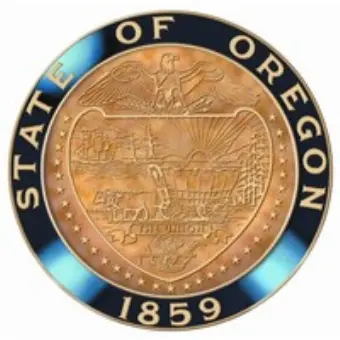Elliott State Research Forest Board Member

State of Oregon
Initial Posting Date:
08/25/2025Application Deadline:
/Agency:
Department of State LandsSalary Range:
$0,000 - $0,000Position Type:
EmployeePosition Title:
Elliott State Research Forest Board MemberJob Description:
The Department of State Lands (DSL) invites applications from individuals interested in serving on the Elliott State Research Forest (ESRF) Board of Directors. We are seeking community-centered leaders with expertise, lived experience, and a commitment to the values and mission of the ESRF.
About the ESRF Board
The ESRF Board advises DSL on the management of the Elliott State Research Forest. The publicly owned ESRF is envisioned as a nationally important center for forest science and management contributing to conservation, education, recreation, local economies while supporting Indigenous values. The Board advises on research and operations plans, community engagement strategies, outcomes essential to achieving the forest mission, and more.
What We Are Looking For
An ESRF Board that includes diverse perspectives and experiences is essential to successfully managing a public research forest for multiple benefits. At this time, we are especially interested in individuals with knowledge or lived experience in one or more of the following areas:
- Indigenous stewardship and cultural knowledge
- Forest ecology or silviculture
- Public administration or policy
- Community development
- Climate resilience and conservation
- Equity and environmental justice
- Research administration
- Rural economies
- Timber operators and processors
- Recreation interests
- Fish and wildlife
- Conservation finance
- Administration of Habitat Conservation Plans
Time Commitment
Board members are appointed to serve a four-year term. Board members attend at least five public meetings annually (typically full-day meetings), prepare by reviewing materials, and may also serve on subcommittees. The average estimated time commitment is 10-15 hours per month and as much as 20-30 hours may be necessary some months.
Application Instructions
Interested individuals must apply through the Workday portal and submit the following:
- Cover letter (2–3 pages) responding to the questions listed below
- Résumé
Cover Letter Questions
- Relevant Expertise and Lived Experience Describe your professional and personal background, including any expertise or lived experience relevant to the ESRF’s mission (e.g., ecology, Indigenous stewardship, rural development, public policy, research, etc.). How have you applied this experience in leadership, volunteer, or collaborative roles?
- Alignment with ESRF Mission and Values What aspects of the Elliott State Research Forest’s mission resonate most with you, and why? How would you contribute to its vision of inclusive, science-based, and community-oriented forest governance?
- Collaboration, Equity, and Representation Share an example of your participation in a collaborative or consensus-based process. Were you comfortable making compromises? How have you worked to advance equity or inclusion in your work? How would you bring a commitment to equity, diverse partnerships, and public accountability to your role on the Board?
- Public Interest and Decision-Making What is your experience with public governance, transparency, or stewardship of the public interest? How do you approach complex decisions that involve multiple, and sometimes conflicting, stakeholder values?
- Research Integration and Connection to Place Describe your experience, if any, integrating research into practice or supporting research and monitoring efforts. What is your connection to the Elliott or to communities, ecosystems, or values it represents?
Acknowledgment Checkboxes (Workday Form)
- I understand this is a volunteer position with no compensation, though travel expenses may be reimbursed.
- I am available to attend at least five full-day meetings annually and participate in committee work.
- I am willing to undergo a background check as part of the appointment process.
- I understand that applications are valid for 12 months and may be considered for mid-term vacancies or future appointment cycles.
Appointment Process
Every October, the State Land Board – Oregon’s Governor, Secretary of State, and State Treasurer – considers appointment of ESRF Board members to serve four-year terms. Applications are accepted year-round and reviewed twice a year by the ESRF Board Recruitment Committee.
The ESRF Board consists of seven or nine voting members. Initial Board members were appointed to serve terms of one, two, or three years. Term end dates were staggered to support building knowledge and strengthening relationships, while also ensuring regular opportunities to enhance the Board.
Because term start dates are staggered, the State Land Board is typically considering at least three ESRF Board member appointments every October.
ESRF Board members may serve two consecutive four-year terms. As referenced in the ESRF Oversight Structure, the max term an ESRF Board Member may serve is 11 years with initial board members serving up to three years followed by an additional two years of four years. Sitting Board members are required to submit applications to be appointed to a second four-year term.
Deadline for October 2025
In October 2025, the Board will consider three appointments for four-year terms. The Board will also consider one appointment for a term ending in October 2027; this vacancy was created with Kaitlin Lovell’s appointment as DSL Director.
To be considered for appointment in October 2025, your application must be submitted no later than Sunday, September 7. Applications submitted after that date will be considered for October 2026 appointment or may be considered should any mid-term vacancies occur.
We Encourage Applications From:
Individuals of all backgrounds, especially those with lived experience in historically underrepresented communities, including Tribal nations, rural residents, and individuals with diverse professional paths.

